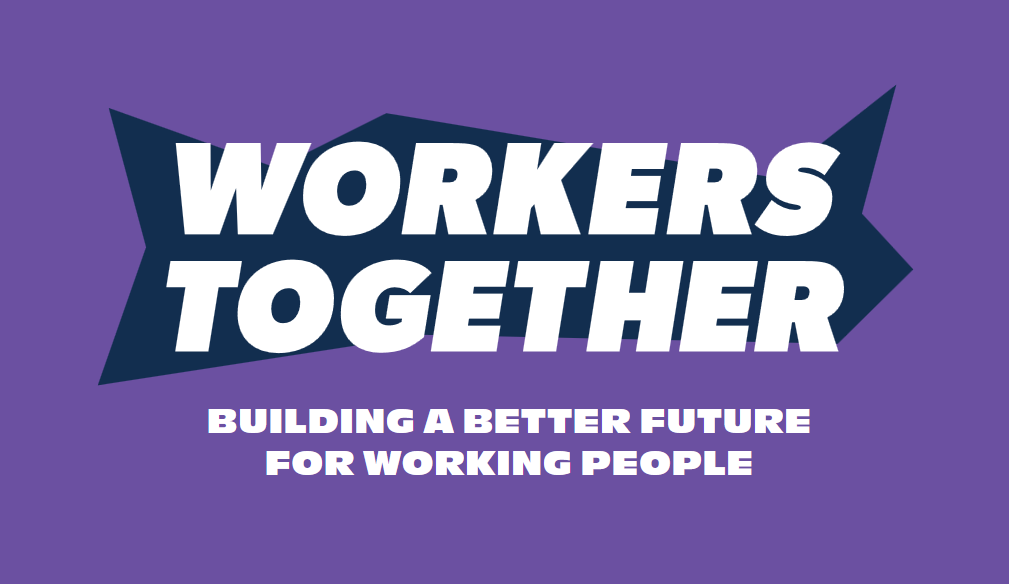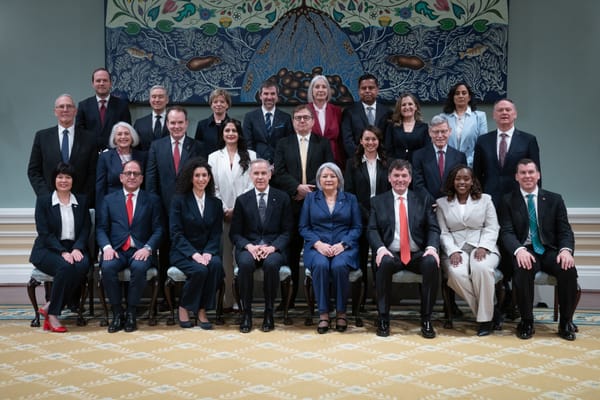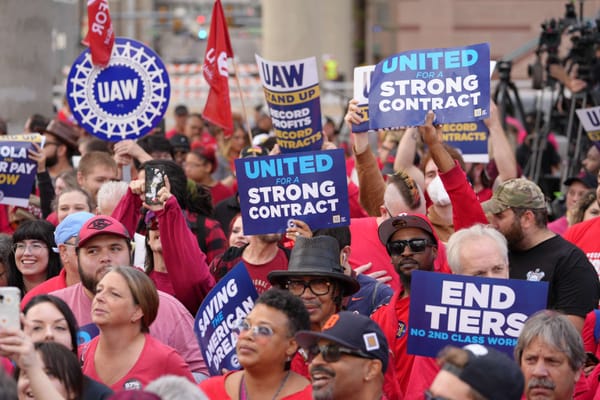
Imagine you and your coworkers are trying to form a union. Maybe you haven’t even gotten to the point where you’re actively “trying,” but are simply broaching the topic with one another. Getting these conversations started can be a significant challenge, especially if management is an ever-present force, which is the case for many workers. If you’re successful in getting a majority of your coworkers on board, how do you connect with the right union to form a bargaining unit?
A union-backed app called YouIn?, launched several months ago, seeks to aid workers in exactly this situation. YouIn? provides a digital platform for workers to connect with one another about organizing their workplaces. Two unions based in British Columbia — the International Brotherhood of Electrical Workers (IBEW) Local 213 and the International Alliance of Stage and Theatrical Employees (IATSE) Local 891 — backed the technology start-up with initial investments of $9,000 each.
The app allows workers to anonymously ask their coworkers if they want to form a union, without management interference. If 60 per cent of the workplace responds positively, the app sends digital union cards for workers to sign. Signed cards are then forwarded to the union chosen by the initiators of the campaign, who can file them at the B.C. Labour Relations Board. Crucially, it is up to the union to make connections with the workers interested in organizing.
The process sounds straightforward enough, but does raise several concerns.
For one, only unions using the app can receive signed cards and connect with workers who are organizing. Without buy-in from a broad cross section of unions, workers in some industries might find themselves without digital access to a union appropriate to represent them.
Relatedly, in the event that the platform becomes a popular tool for new organizing, unions will likely need to manage jurisdictional conflicts arising from workers seeking representation in industries where more than one union is active.
Unions will pay subscription fees to use the app. Those who pay such fees could potentially come into conflict with another over who is best suited to represent newly organized workers. Canada’s industrial relations system of worksite level bargaining notoriously sets unions in competition with one another over new members, with all the issues of jurisdictional conflict and recurrent accusations of raiding that this can unfortunately entail. A digital organizing platform could exacerbate these issues if careful consideration isn’t given to managing such conflicts ahead of time.
The app could, however, helpfully allow workers to evade management authority and reduce the risk of employer retaliation. YouIn? may provide a helpful digital space for workers to freely get a union campaign off the ground while avoiding any forum where management could intercept workers’ communications. Organizers strongly advise workers to never use company email or other internal communication methods to talk about union organizing. But even with this caution, management can still catch wind of union campaigns. An additional tool to provide workers with some digital security could thus be useful.
But there is a caveat. According to YouIn?’s website, anonymity is a central part of the digital outreach process. This has its strengths and weaknesses. On the one hand, beginning anonymously may afford workers a measure of comfort in the initial stages of a campaign, when the prospects of unionization are uncertain and the sentiments of coworkers are unknown. On the other hand, connections with coworkers and mutual trust are often key to successful organizing campaigns. Many victorious union efforts begin with a trusted worker — what the union strategist Jane McAlevey calls “organic leaders” — making their support for the union and its demands publicly known in the workplace. Workers will need to be sensitive and attentive to the circumstances of their particular workplace. In many instances, use of the app will need to be paired with person-to-person outreach.
There is a related risk of treating union certification as the end of the line, when in fact winning a good first contract requires deep organizing that goes well beyond signing cards and winning at the labour board. An app to streamline certification is no substitute for the strong bonds that must be built across the entire workplace if workers expect to win a strong collective agreement.
Last, it is clear that this app will be much more useful in jurisdictions like B.C. where card-check certification is in force. Where workers will have to not only submit signed union cards but also win a mandatory labour-board supervised vote, as in Ontario, they may not find the same level of success with YouIn?. Workers in jurisdictions with “two-step certification” could still make use of the app to get cards signed quickly, but winning the vote will likely necessitate additional face-to-face organization to inoculate workers against employer backlash and opposition to unionization.
In 2016, the B.C. Labour Relations Board issued a decision allowing a union (United Food and Commercial Workers Local 1518) to submit digitally signed union cards in a certification. That the Board has created this precedent will assist unions seeking to utilize the YouIn? platform in the app's home province. It's also noteworthy that other provincial labour boards allowed the use of digital cards during the pandemic.
YouIn? of course comes at a time of growing excitement over new, high profile organizing campaigns at employers such as Starbucks and Amazon. The app could aid workers who are initiating similar organizing without the help of established unions, but who ultimately want to certify with one. As many unions — particularly those in the private sector — devote less time and resources to new organizing campaigns, a digital tool that allows workers to get started before reaching out to an established union might help facilitate new certifications.
The app could also potentially be useful for workers who are spread across worksites or who don’t share a common, ongoing physical workplace. This is likely part of the motivation for IBEW Local 213 and IATSE Local 891 backing the app: both unions represent workers who frequently move between worksites.
As most union organizers will recognize, an app can’t replace face-to-face organizing. Building trust between workers will remain an essential element of union campaigns. But a digital tool could aid new unionization, particularly in hard-to-organize workplaces. Another tool in the kit can’t hurt.
CORRECTION: This newsletter has been updated to note that the B.C. Labour Relations Board has taken a position on digital union cards. The Maple regrets the error.
Recent Class Struggle Issues
- June 5 | B.C. Increases Minimum Wage, But Workers Are Still Behind
- May 29 | The Teamsters Are Looking To Unionize Freedom Mobile Workers
- May 22 | TTC Workers Have Won Back Their Right To Strike
- May 15 | Colonialism, Capitalism And State Schooling In B.C.







